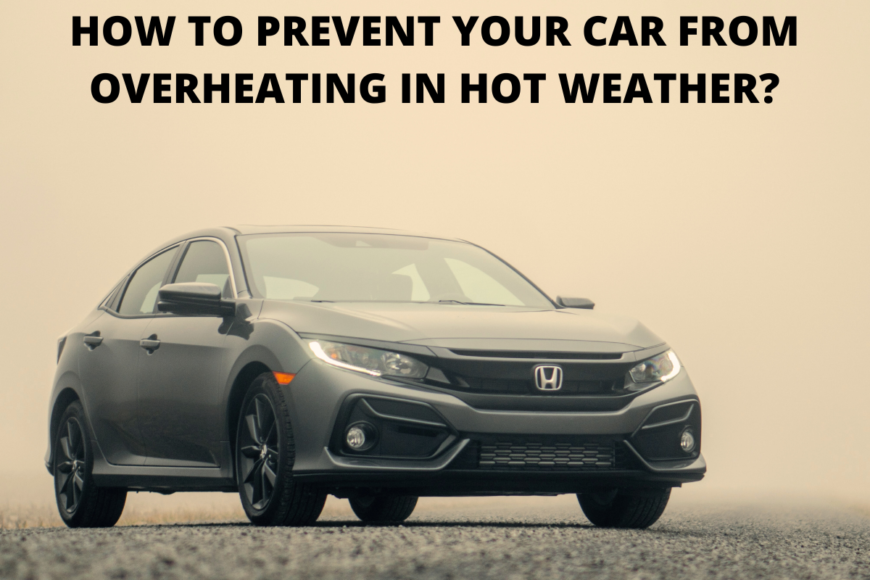- 10/05/2024
- By Auto Planet Wheels
- In Blogs
- Tags Prevent Your Car from Overheating in Hot Weather?
- 115
- 0

Driving in hot weather can put an extra strain on your car’s engine and cooling system, increasing the risk of overheating. An overheating engine can cause severe damage, leave you stranded on the road, and result in costly repairs. This blog will provide you with practical tips and guidance on how to prevent your car from overheating in hot weather, ensuring your vehicle remains in optimal condition all summer long.
Before diving into prevention tips, it’s important to understand the primary reasons why cars overheat, especially during high temperatures. Some common causes include:
Now that we’ve covered the causes, let’s move on to the steps you can take to prevent your car from overheating in hot weather.
Coolant, or antifreeze, is critical for keeping your engine temperature under control. The coolant absorbs heat from the engine and dissipates it through the radiator. During hot weather, the demand on the coolant system increases, so it’s vital to ensure there’s enough coolant in the reservoir.
Also, it’s important to have your coolant system flushed and refilled according to your car’s maintenance schedule. Old coolant loses its effectiveness and can become corrosive, leading to leaks and overheating.
Your car’s dashboard has a temperature gauge that provides real-time information about the engine’s heat levels. It typically shows a range from “cold” to “hot,” and under normal conditions, the needle should be in the middle.
Paying close attention to the temperature gauge can give you early warning signs that your car might overheat, helping you take action before it becomes a serious problem.
The radiator is at the heart of your car’s cooling system, and it’s essential to ensure it’s functioning correctly, especially in hot weather. Some maintenance tasks include:
The water pump plays a crucial role in circulating coolant throughout the engine. A malfunctioning or worn-out water pump can lead to overheating. You can usually detect issues with the water pump through:
If you suspect an issue with your water pump, it’s best to have it checked by a professional mechanic before it leads to overheating.
If you’re stuck in traffic or can’t pull over, turning on your car’s heater can help manage engine temperature. Although it sounds counterintuitive, the heater pulls heat away from the engine and transfers it into the cabin.
While this isn’t a long-term solution, it can buy you time until you can pull over safely or reach a repair shop.
Overloading your vehicle with excess weight or towing heavy loads can put extra stress on the engine, especially in hot weather. The additional strain forces the engine to work harder, increasing the chances of overheating.
Reducing unnecessary weight in your car and ensuring that you aren’t exceeding its load capacity can help keep your engine cooler during hot conditions.
While it’s tempting to blast the air conditioning during hot weather, it can put additional strain on your engine. The air conditioning system requires power from the engine to operate, which increases the engine’s workload.
Turning off the air conditioning may make you uncomfortable, but it could prevent engine overheating in the long run.
Regular maintenance is key to preventing overheating and other engine issues, especially during the summer months. A comprehensive car inspection can identify potential problems before they become severe. Here’s what to include in your routine maintenance:
Having your car serviced regularly by a professional mechanic ensures that the cooling system is functioning optimally and reduces the likelihood of overheating.
If possible, avoid driving during the hottest parts of the day, typically between 12 PM and 4 PM. If you must drive during these hours, try to take shorter trips or plan your route to include breaks where you can stop and let the engine cool down.
If you find yourself stuck in traffic in extreme heat, switch to neutral or park and gently rev the engine to increase airflow through the radiator. This can help cool the engine slightly while stationary.
It’s always a good idea to carry a spare bottle of coolant and water in your car, especially during summer road trips. If your car starts to overheat and the coolant level is low, you can top it off to temporarily reduce the engine temperature until you can reach a service station.
Preventing your car from overheating in hot weather requires regular maintenance and attention to your vehicle’s cooling system. By keeping coolant levels in check, monitoring your temperature gauge, and staying on top of maintenance, you can avoid costly repairs and stay safe on the road.
Regular car maintenance is not just important in hot weather—it is essential year-round. For more comprehensive advice on keeping your car in top condition, check out our Top 10 Car Maintenance Tips to Keep Your Vehicle Running Smoothly. From regular oil changes to tire checks, these tips will help ensure your vehicle performs optimally every day.
At Auto Planet Wheels, we offer a full range of car repair and maintenance services in Thane, including coolant system checks, radiator repairs, and regular servicing to ensure your vehicle is performing at its best. Our skilled mechanics are ready to help you keep your car in top shape, even during the hottest months of the year. Book your appointment today by visiting Auto Planet Wheels or calling us directly!